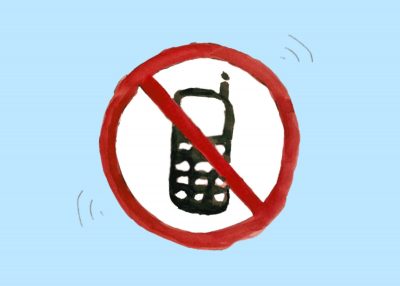Attention Generation Z. We are the loneliest age group in the nation. According to the American Psychological Association’s Annual Stress in America, 15 to 21-year-olds have the worst mental health of any generation.
Our generation has grown up with the creation and rise of social media.
We are the ones who have experienced meeting college roommates through Facebook, potential partners through Snapchat and employment opportunities through LinkedIn. The constant, real-time assimilation of news from multiple mediums produces a never-ending flood of (often devastating) information during all hours of the day.

Maintaining an online presence on social media can be exhausting. We’re expected to create unique, cool online identities while balancing the other stressors of life. We are expected not to be swayed by what others do and post online.
Social media makes me feel depressed and anxious nearly every time I go on it. I know I am not the only one. No wonder why we feel so lonely.
According to a Psychology Today article, the leading three reasons for Gen Z’s loneliness include overstimulation, social media and a dependency shift.
Overstimulation suggests we bite off more than we can chew. People are distracted by work, chores, progress, social media, and the activities of today and tomorrow. Social media makes us feel alone and left out, and a dependency shift makes us rely excessively on technology and artificial intelligence.
Being coined as the loneliness generation is saddening, but there is hope for us all. One of the best ways to conquer this loneliness is to rip the bandaid off and unplug from the phone — specifically, social media accounts.
Deleting social media is a fail-safe way to stop comparing yourself to others. It pressures people to build and maintain in-person connections.
For the past five months, I’ve had all my social media apps deleted from my phone. TikTok, Snapchat, Instagram, Facebook, Twitter, you name it and it probably isn’t on my home screen!
It’s been the best decision for me.
Any time I used to be on my socials, I would catch myself going down the rabbit hole. I would compare myself to everyone I followed. Were my photos as funny as theirs? Did I seem as cool as everyone else? Was my photo dump compelling enough?
I felt so lonely on those apps. My social media was a fool-proof crutch in situations I wanted to avoid. The simple maneuver of looking down at my phone when surrounded by intimidating people became habitual.
The habit was straining my social skills and affecting my ability to interact with my environment. Social media made me feel lonely, but my addiction to it and how it helped me avoid inevitable social situations hurt me.
Deleting social media effectively boosted my social skills — on the T, in the elevator, at a restaurant or in a museum. It helped me become a more mindful and intentional person. Having social skills boosted my confidence. Feeling secure heightened my creativity, mitigated my anxiety, and dissolved my FOMO.
A social media-free lifestyle has inspired me to keep the screen-free adrenaline going. I now consciously try to keep my phone in my pocket when I am in a social environment. It forces me to step out of my comfort zone to meet new people and sit with the discomfort of not always being entertained. It also helps me become more grounded in the activities I engage in.
There is no denying that leaving social media is an awkward and non-linear process when I want the addicting sensation of scrolling. Still, the longer I’ve gone without social media, the closer I have gotten to healing the social media-driven loneliness that followed me for years.
















































































































